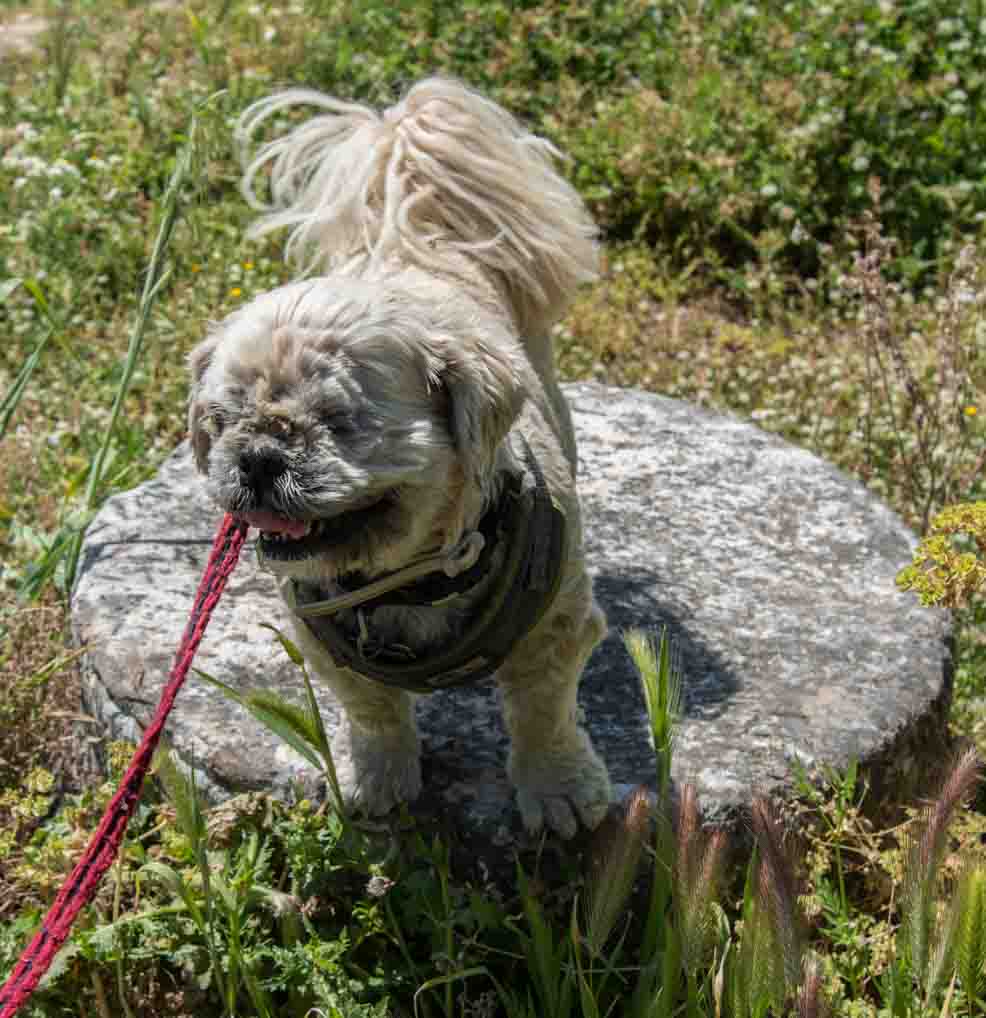
I AM SPARTA!
Last night I had a bit of a shock. As I took some rice encrusted pans over to the communal washing up area at Camping Meltemi, facing me was a Hymer motorhome with its curtains open and all the lights on. What did I see inside? Only a man in his 60s or 70s, prancing around stark, staring naked, that’s what! Based on one of my many presumptions about my continental cousins, I assumed he was German. We all know that, of all the nationalities of Europe, the quickest to disrobe on a beach, at the drop of a hat, are the Germans. They don’t need a second excuse.
So I went about my business, somewhat taken aback. Imagine my surprise upon emerging from my washing up duties to find the motorhome was French! Well, my prejudices confounded, I just comforted myself with the thought that they’re all a funny lot when you cross the English channel.
Today we said goodbye to Camping Meltemi, by buying three litres of their excellent olive oil and a large jar of their Kalamata olives.
We made a quick stop for a shop at LIDL, where we met our first aggressive wild dog. It was a large golden retriever type dog. It wasn’t aggressive to us, but to our dogs, who, as a consequence, had to cross their legs and wait for a later opportunity to relieve themselves.
Ancient Sparta was next. I knew there was not much left of ancient Sparta to see, but since Mistras, our next port of call, is so close to Sparta I had to visit. The Spartans were the ultimate warriors of Ancient Greece. Brought up from the age of 7 with hard physical exercise, to give their lives without question, as they did under King Leonidas at the famous Battle of Thermopylae, where 300 Spartans (together with others) fought to the death against tens of thousands of Persians, sacrificing themselves to allow the rest of the Greeks to make a strategic restreat.
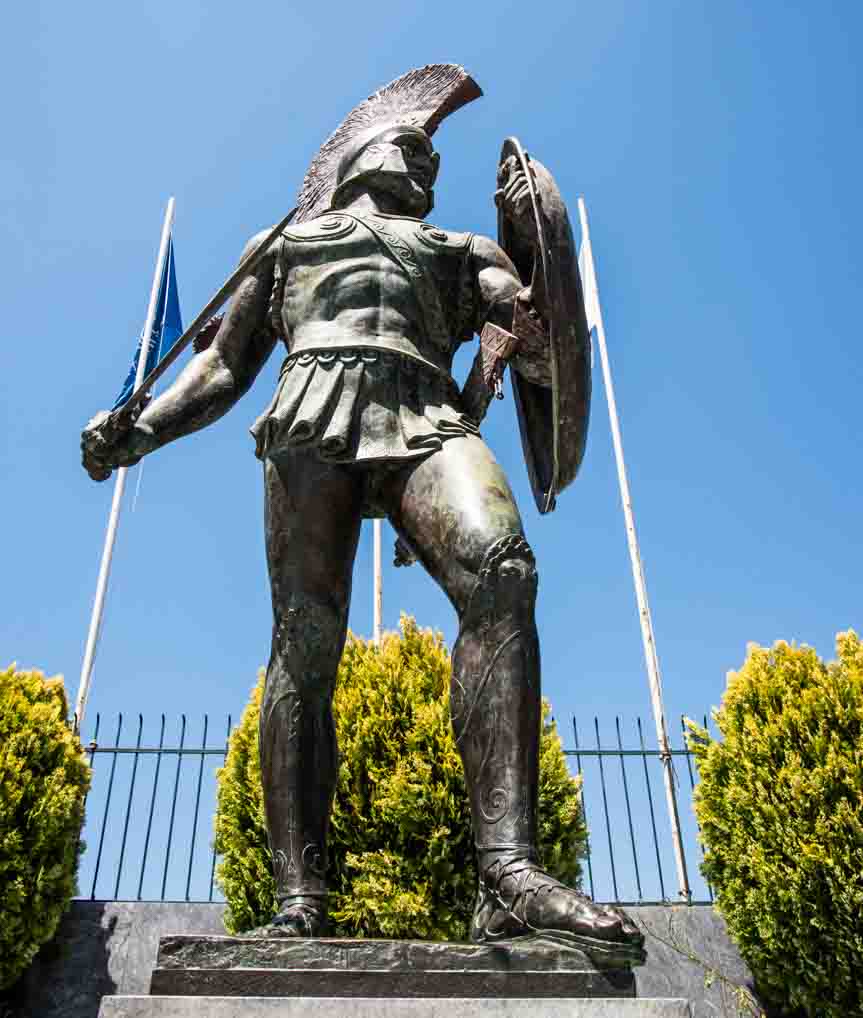
King Leonidas of 300 fame
The Spartans were not builders of big monuments however. The Greek historian Thucydides said that if Sparta was deserted “distant ages would be very unwilling to believe its power at all equal to its fame”. And the Spartan Lykurgos said “it is men that make a city, not walls”.
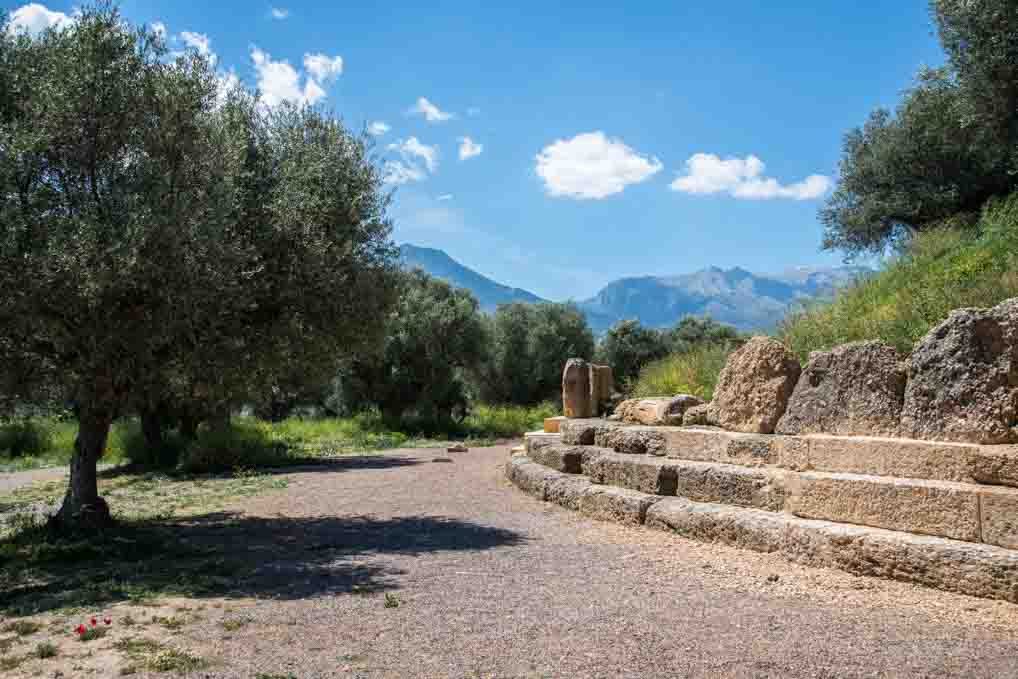
The Round Building
They were both right. Without men, there is not much left of Sparta. We had a wander around the site, which is free to enter. The only substantial remains which are definitely from Sparta’s heyday 800 to 400BC, are from the enigmatically named “round building”. There is a large theatre, but although ancient Sparta did have a theatre, the remaining structure is Roman in origin: interesting nonetheless.
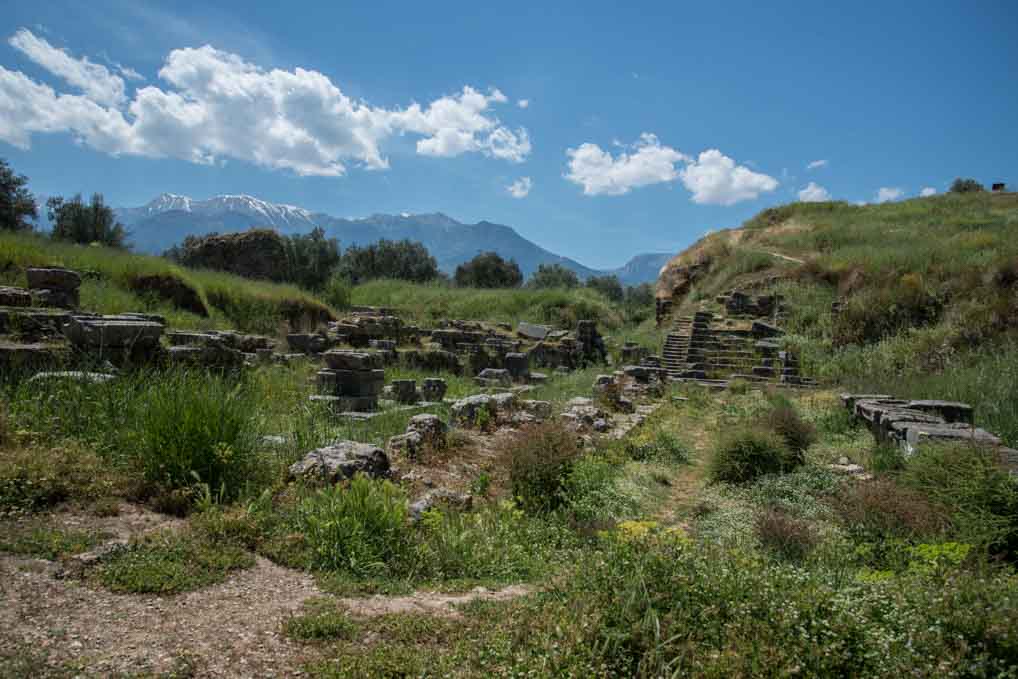
Theatre
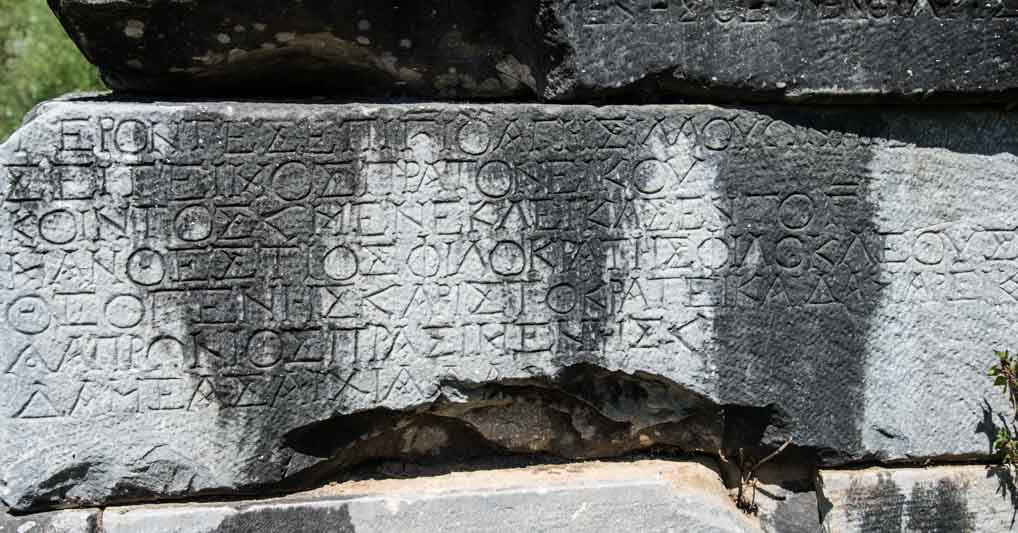
Greek inscription in the theatre
Almost as fascinating as the buildings was getting a sense of the location. Surrounded on all sides by high mountains, upon which the Spartan’s famously left their sickly babies to see if they would survive a night. It was these same mountains which provided Sparta a superb defensive position, such that Sparta, although it lost battles and wars, was never conquered.
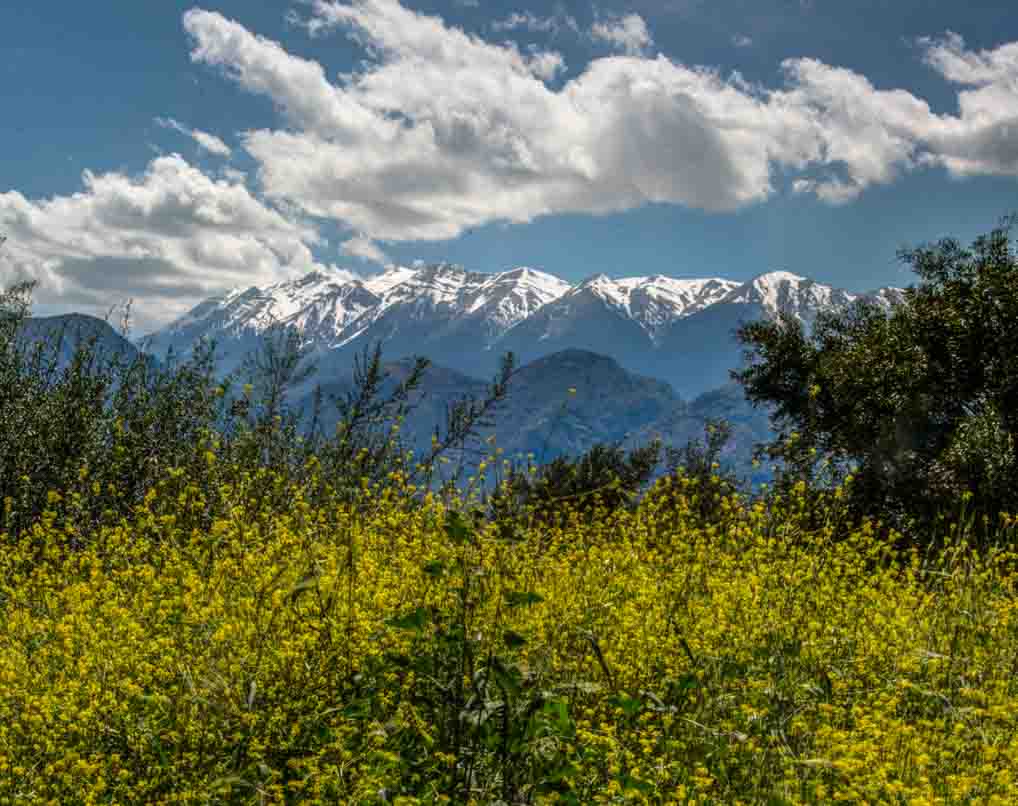
Mount Profitis Ilias from Ancient Sparta
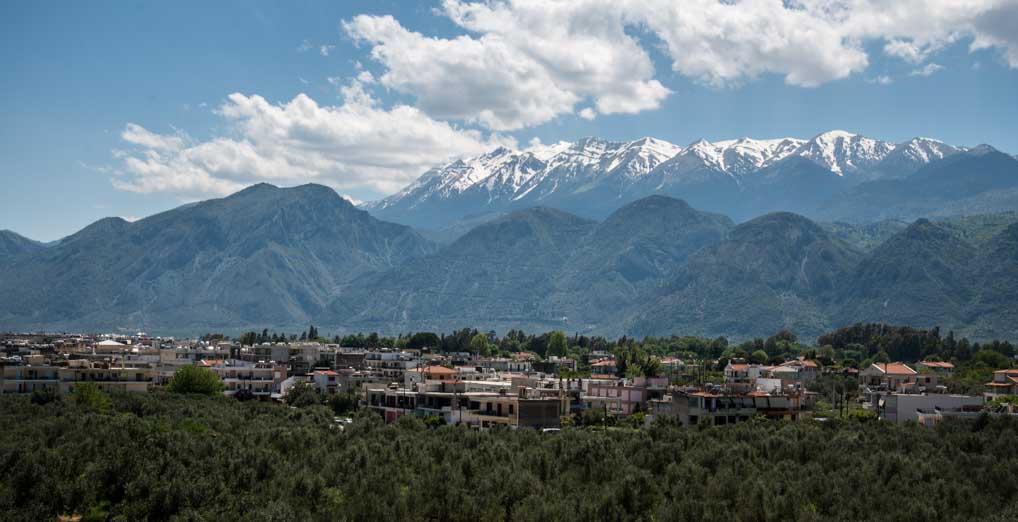
Modern Sparta from the acropolis of Ancient Sparta
After touring Sparta we visited a couple of the wildcamping spots in the area. One was on a scruffy side street in Sparta and the other was on a rather exposed layby on the main road between Sparta and Mistras. So we chickened out and checked into Camping Paleologio, where we are paying €20, without electricity for a very basic campsite. We only intend to stay one night.
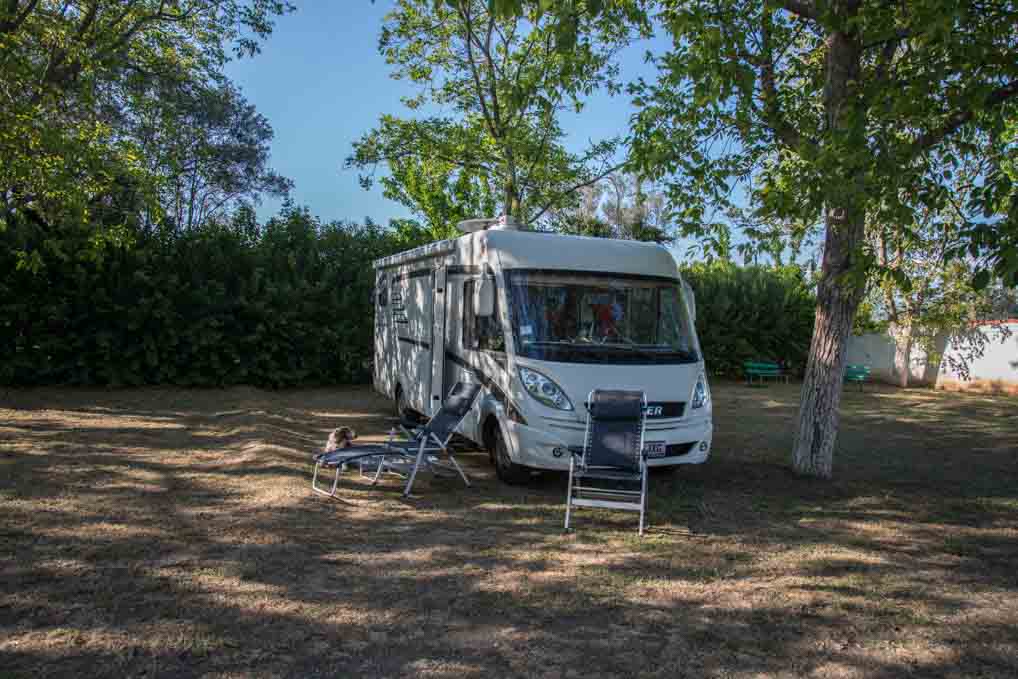
Basil’s resting spot at Camping Paelogia
We have already driven to Mistras to investigate parking for tomorrow and it looks very exciting – if you like ancient sites!
